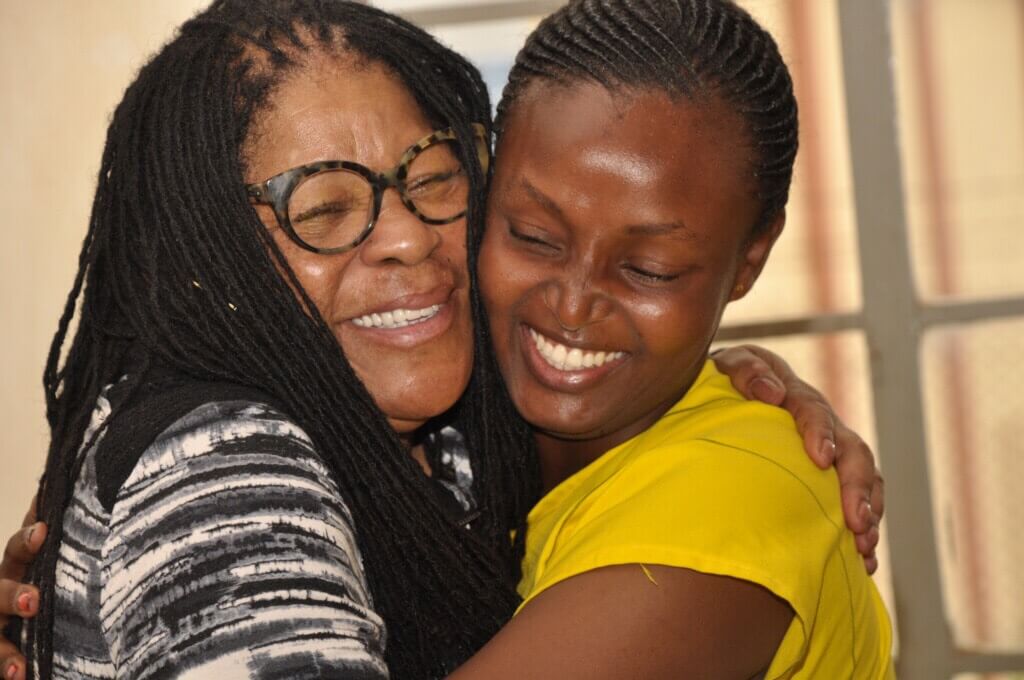Susan is in Uganda this week helping NGO Wells of Hope set up safe housing for women leaving prison. She wrote this blog entry after visiting a women’s prison near the capital city of Kampala.
We had a lovely time at Luzira Prison outside of Kampala on Tuesday. Francis Ssuubi (founder of Wells of Hope), Rebecca Ginsburg from University of Illinois, and I met and spoke with around 60 women, and they were absolutely beaming, bursting with joy and excitement. It was so nice to see.
Some of the women welcomed us by playing drums and singing for us. It seemed so natural and so powerful, and the drumbeat really resonated with me. Rebecca is working on creating a reentry guide for the whole country, and she asked the women to vote on a subtitle for the book. Just a small decision like that gives incarcerated people the knowledge that their voices are still powerful.
Before I spoke, we asked if anyone had read “Becoming Ms. Burton” already (a few women had) and how it affected them. One woman said she couldn’t put the book down. Another said that before she read the book, she thought her life was over because she was incarcerated. Now she has all kinds of ideas about the work she wants to do to help others when she gets out.
Before I wrote “Becoming Ms. Burton,” I never dreamed it would have such a reach. It gives incarcerated women (and men) a new breath of hope for what their future might hold. Rebecca and I had stuffed our suitcases with copies of “Becoming Ms. Burton” to give to the women in the prison, but we still ran out.
We talked about the need for a reentry home in Uganda and what women most needed when they left prison. Most were excited about reuniting with their children. However, many of the women were allowed to have their children with them, up to the age of five. Once the children are too old, they go to the Wells of Hope school, which Francis runs and which we had visited the day before.
Prison life is very different in Uganda than it is here. Incarcerated women also do work around the prison, but their work involves weaving and knitting (a very highly regarded craft here), gardening, raising livestock or working in the kitchen. And instead of living in a big concrete monstrosity like prisoners do here, the Ugandan prison was very open and green with lots of space. The guards seemed almost maternal to the women, not hostile. But there was still an element of subservience; when a guard passed by, the women had to kneel on the ground, much like in American jails where prisoners have to turn and face the wall in the presence of a corrections officer.
It struck me how difficult it had been for me to walk out of prison with $200 of gate money in my pocket – but these women leave penniless. In Uganda, formerly incarcerated women are often shunned when they go back to their families and villages, so the need for support and services is great. The women need a place to go so they’re able to make a new life for themselves and their children. I’m really grateful that I’ve been able to make this trip to meet them and see what their lives are like; it has been extremely meaningful for me. During this year, we will work with Wells of Hope to make sure that the incarcerated women of Uganda are not forgotten and are given a chance at life.


